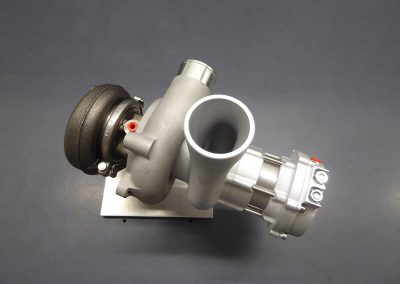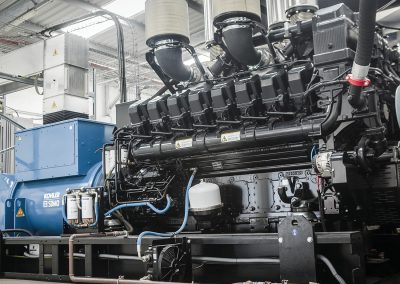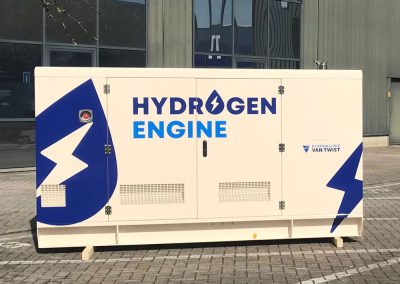Sustainable power at zero emission
VAN DER LEE TURBO SYSTEMS HELPS TO CREATE THE ENGINE OF THE FUTURE
Turbochargers have been used on internal combustion engines for decades, but their application on hydrogen engines is a relatively new development. Hydrogen engines have several advantages over conventional gasoline engines, including lower emissions and increased efficiency.
One of the challenges of hydrogen engines is their lower power density, which can be overcome with the application of a turbocharger. Overall, the use of turbochargers on hydrogen engines has great potential to improve their efficiency, power output, and overall performance. As the demand for low-emission fuels continues to grow, the development of turbocharged hydrogen engines will likely become increasingly important in various industries.
The turbocharger on a hydrogen engine works in the same way as on a conventional engine, by compressing air and increasing its density before it enters the combustion chamber. This results in a more efficient combustion process and increased power output. Since hydrogen is a low-density fuel, a turbocharger can help to increase the engine’s power density, which is essential for many industrial applications. One of the key benefits of using a turbocharger on a hydrogen engine is that it helps to improve the engine’s overall efficiency.










